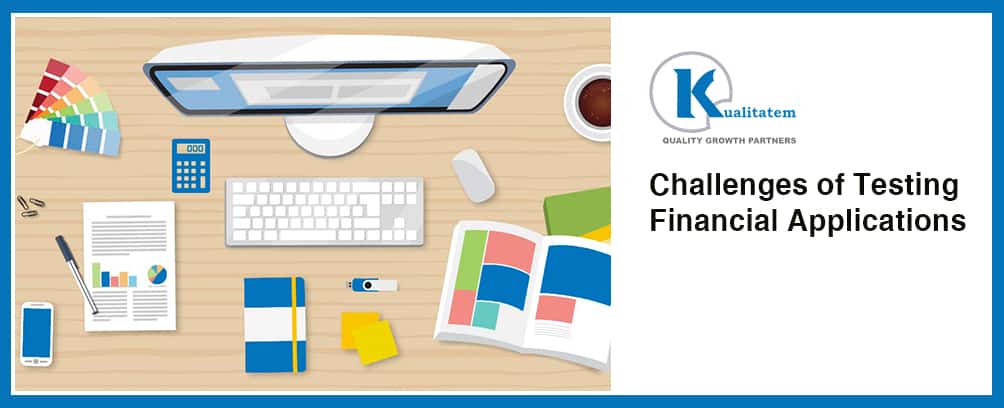Challenges of Testing Financial Applications

- January 6, 2016
- admin
Have Challenges of Testing Financial Applications Been Emphasized Enough?
The challenges of testing financial applications have been covered for an ample number of times by various testing companies, independent bloggers, and the financial institutions themselves. However, the importance of testing the application as a combination of ‘people and technology’ is hardly ever emphasized, or even realized.
While security, usability, accuracy and performance are integral parts of software development and testing processes, we believe that it is of utmost importance that the final testing of the product is conducted through a combination of ‘people and technology’. In actuality, this is the ‘final glow or blow’ step because it concludes if the application has truly achieved what it was destined to. Why? We base our opinion on two primary rationales:
Developers and Testers – “Null” in Financial Concepts:
The IT people, developers and testers, are not trained in the field of finance and therefore, sometimes they omit important details in the application development/testing process. It cannot be stressed enough that there is no room for error when it comes to banking and investment management software, where even a change of 0.01% might lead to extensive losses.
It is of vital importance to have knowledge of financial domain, processes and procedures, exposure to trading and stock markets to test BFSI (Banking, Financial Services and Insurance) applications. You cannot guarantee that 100% testing is performed but you can certainly confirm that enough testing has been done. With domain knowledge and testing expertise, one is able to create a balance where majority of aspects of financial application testing are covered and chances of errors are minimized.
Finance Gurus – Uneducated in Software Handling:
Since technology is transforming the traditional banking and financial landscape, the need of the hour is that people working in that sector must equip themselves with latest trends in technology as well. People who come from the financial background sometimes find it difficult to grasp the software changes or even upgrades. They must be educated to utilize the software to its full potential in order to minimize functional flaws and mitigate errors.
It does not matter which department of the financial institution an individual is working in, he/she should be able to use the financial application in a proficient manner. Financial technologies applications cost a fortune and can become really expensive until or unless you have the right processes and the right people in place who, in turn, boost the overall performance of the institution.
Regression Testing and the Inevitable Ripple Effect
There is one more area that needs special attention while testing financial applications. We call it the ripple effect.
Once the testing team has reported all the bugs and the development team has fixed those bugs, it is time for the testing team to identify those areas of financial applications which get decisively impacted due to the bug fixes. Since complex financial applications consist of multiple interdependent components exchanging data and information, it is extremely difficult to identify the impacted areas especially if the tester has no knowledge of the processes running at the back of the financial application.
Henceforth, it is a big challenge that needs a keen and extensive regression testing with testers who are equally good in technology and financial domain. Regression testing is the most extensive and time consuming activity that involves the identification and testing of modified parts of the application in addition to those aspects that have the potential for new bugs due to the introduced changes – thus the ripple effect.
Unlocking Synergies
The concluding verdict is that it is imperative to develop and test the financial applications by conjoining people who come from financial backgrounds with those who are technologically equipped. Provided that the IT people have developed and tested the application in unison with the accounting/finance people, the end product would have better chances of drawing the following benefits:
- Reduced Cost of Quality: One would have better chances of creating a quality product/service right the first time
- Zero Redundancy: Minimal recurrence in operations and processes that would, in turn, enhance the performance efficiency
- Integrity: Perfect integration with any other third-party existing applications in the financial institution
- User Friendliness: Combining finance and IT would plausibly result in better UI experience for the end users of the application, allowing them to easily acquaint themselves with the product and/or educate themselves if required
- Realization of Full Potential: Following user friendliness, 100% understanding of the application would result in its 100% utilization and a 100% happy client











